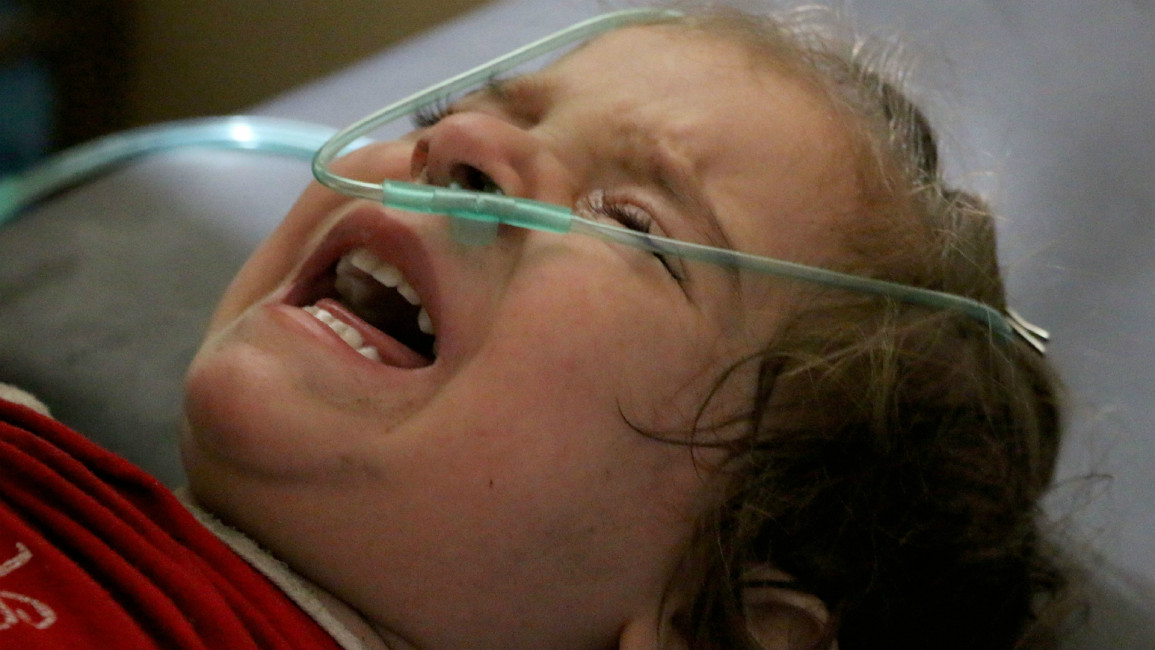Syrian regime used chemical weapons in final Aleppo push
Regime helicopters dropped chlorine bombs on rebel-held eastern Aleppo between November 17 to December 13, killing at least nine people, including four children.
Around 200 people were also injured by the toxic gases used in the attacks, the report said, basing its findings on witness interviews, pictures and video footage obtained.
The attacks may have involved as many as three helicopters operating jointly and took place in areas where government forces were poised to advance.
"The pattern of the chlorine attacks shows that they were coordinated with the overall military strategy for retaking Aleppo, not the work of a few rogue elements," Ole Solvang, HRW's deputy emergencies director, said.
For five of the attacks, HRW reviewed photographs or video footage of remnants of at least seven yellow cylinders that carried warnings that they contained gas.
The actual number of chemical attacks could be higher, the group said, adding that journalists, medical personnel and other credible sources had reported at least 12 attacks in that period.
 |
One of the deadliest bombings hit the neighborhood of Sakhur killing six members of the same family, including four children whose lifeless bodies were shown on video |  |
According to the report, one of the deadliest bombings hit the neighborhood of Sakhur on November 20, killing six members of the same family including four children whose lifeless bodies were shown on a video taken by the Shabha press agency.
|
|
The report also detailed attacks on a playground, clinics, residential streets, and houses that left scores of people struggling to breathe, vomiting and unconscious.
"The chemicals would affect the children most severely... they inhale these smells and they end up suffocating," said a first responder quoted in the report.
Human Rights Watch called on the Syrian regime to immediately stop using chemical weapons and urged the UN Security Council to impose sanctions on senior leaders in Syria's chain of command.
It also urged the 192 parties to the Chemical Weapons Convention to address Syria's alleged violations of the treaty.
Chlorine use as a weapon is banned and could amount to war crimes, according to the convention - which Syria joined in 2013 under pressure from Russia.
A joint investigation by the UN and the Organization for the Prohibition of Chemical Weapons (OPCW) found that several units of the Syrian regime's forces had used toxic weapons against three villages in northern Syria in 2014 and 2015.
It was the first time an international probe blamed Bashar al-Assad's forces after years of denial from Damascus.
A new report by the same joint panel is expected to be released later this month. HRW says it has sent its recent findings to them.
Agencies contributed to this report.



